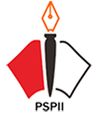The Use of The Group Investigation Type of Cooperative Learning Model When Online Learning to Increase Students' Learning Motivation
DOI:
https://doi.org/10.15575/ath.v7i2.13713Keywords:
Group Investigation, Learning Motivation, StudentsAbstract
This study aims to determine the application of the Group Investigation Type cooperative learning model to the subjects of Islamic Religious Education and Character Education in seventh-grade students at SMPN 4 Cianjur through online learning. This study used a quasi-experimental method located at SMPN 4 Cianjur. The data collection tools used were observation, interviews, tests, questionnaires, and literature studies—quantitative data analysis with a statistical approach. The results of this study are: first, the application of the group investigation type cooperative learning model to PAI and Budi Pekerti subjects in class VII SMPN 4 Cianjur with online learning is included in the particular category as indicated by the acquisition of variable X of 4.20 which is included in the interval 4.20 to 5.00. Second, the learning motivation of class VII students at SMPN 4 Cianjur is high if online learning using the group investigation type cooperative learning model is included in the high category as indicated by the acquisition of the Y variable of 3.92, namely at intervals. From 3.40 to 4.19. Third, the application of the Group Investigation type of cooperative learning model in online learning has a relationship with an increase in student motivation of 0.83 with a strong category including the interval 0.80-1.00. The significant influence of variable X on variable Y can influence or contribute 68.9%, while other factors influence the remaining 31.11%.
References
Abidah, A., Hidaayatullaah, H. N., Simamora, R. M., Fehabutar, D., & Mutakinati, L. (2020). The Impact of Covid-19 to Indonesian Education and Its Relation to the Philosophy of “Merdeka Belajar.†Studies in Philosophy of Science and Education, 1(1), 38–49. https://doi.org/10.46627/sipose.v1i1.9
Aryana, I. M. P. (2019). Model Pembelajaran Kooperatif Tipe Group Investigation Untuk Meningkatkan Motivasi Belajar Dan Hasil Belajar Siswa. Adi Widya: Jurnal Pendidikan Dasar, 4(1), 61. https://doi.org/10.25078/aw.v4i1.931
Creswell, J. (2015). Riset Pendidikan Perencanaan, Pelaksanaan, dan Evaluasi Riset Kualitatif dan Kuantitatif (5th ed.). Pustaka Pelajar.
Dedih, U. (2014). Model-model Pembelajaran.
Erman. (2008). Model Belajar dan Pembelajaran Berorientasi Kompetensi Siswa. Jurnal Pendidikan Dan Budaya, 5(2), 11–12.
Fauziyah, A., Rosnaningsih, A., & Azhar, S. (2017). Hubungan antara Motivasi Belajar Dengan dinat Belajar Siswa Kelas IV SDN Poris Gaga 05 Kota Tanggerang. Jurnal Pendidikan Sekolah Dasar, 4(1), 48–53.
Hamdu, G., & Agustina, L. (2011). Pengaruh Motivasi Belajar Siswa Terhadap Prestasi Belajar IPA di Sekolah Dasar. Jurnal Penelitian Pendidikan, 12(1), 81–86.
Hanief, Y. N., & Himawanto, W. (2017). Statistik Pendidikan (1st ed., Issue April). Deepublish. https://doi.org/10.31227/osf.io/judwx
Harahap, R. A., & Derlina. (2017). Pembelajaran Kooperatif Tipe Group Investigation (GI ) dengan Metode Know-Want-Learn ( KWL ): Dampak. Jurnal Ilmiah Pendidikan Fisika Al Biruni, 06(2), 149–158. https://doi.org/10.24042/jipfalbiruni.v6i2.1369
Hartoto, T. (2016). Model Pembelajaran Kooperatif Tipe Group Investigation (Gi) Meningkatkan Aktivitas Dan Hasil Belajar Sejarah. Historia, 4(2), 131. https://doi.org/10.24127/hj.v4i2.553
Isriani, H., & Puspitasari, D. (2012). Strategi Pembelajaran Terpadu (Teori, Konsep & Implementasi) (Qoni (ed.); 1st ed.). Familia (Group Relasi Inti Media).
Junanah, & Nursalim. (2016). Penerapan Cooperative Learning Model of Group Investigation Guna Meningkatkan Kemampuan Penguasaan. Jurnal El Tarbawi, IX(2), 99–118.
Kauffman, H. (2015). A review of predictive factors of student success in and satisfaction with online learning. Research in Learning Technology, 23(1063519), 1–13. https://doi.org/10.3402/rlt.v23.26507
Kellen, R. (2007). Effective Teaching Strategis Lesson From Research And Practice.
Kim, K., Sharma, P., Land, S. M., & Furlong, K. P. (2013). Effects of Active Learning on Enhancing Student Critical Thinking in an Undergraduate General Science Course. Innovative Higher Education, 38(3), 223–235. https://doi.org/10.1007/s10755-012-9236-x
Makmun, A. S. (2003). Psikologi Kependidikan. Remaja Rosdakarya.
Nurjan, S. (2016). Psikologi Belajar (W. Setiawan (ed.); 2nd ed.). CV. WADE GROUP.
Priatna, T. (2020). Prosedur Penelitian Pendidikan (Nurhamzah (ed.); II). CV. Insan Mandiri.
Rahayu, Y. N. (2019). Statistika Pendidikan.
Rosyidah, I. (2019). Belajar dan Pembelajaran I Dalam Tataran Teori dan Praktek.
Rusman. (2012). Model-Model Pembelajaran Mengembangkan Profesionalisme Guru (5th ed.). PT. RajaGrafindo Persada.
Situmorang, R. M., Muhibbuddin, & Khairil. (2015). Penerapan Model Pembelajaran Problem Based Learning Untuk Meningkatkan Hasil Belajar Siswa Pada Materi Sistem Ekskresi Manusia. Jurnal Edubio Tropika, 3(2), 87–90.
Siyoto, S., & Sodik, M. A. (2015). Dasar Metodologi Penelitian (Ayup (ed.); 1st ed.). Literasi Media Publishing.
Slavin, R. E. (2014). Aprendizaje cooperativo y rendimiento académico: ¿por qué funciona el trabajo grupal? Anales de Psicologia, 30(3), 785–791. https://doi.org/10.6018/analesps.30.3.201201
Sugiyono. (2019). Statistik Untuk Penelitian (30th ed.). Alfabeta.
Suprihatin, S. (2015). Upaya Guru Dalam Meningkatkan Motivasi Belajar Siswa. Jurnal Pendidikan Ekonomi UM Metro, 3(1), 73–82. https://doi.org/10.31316/g.couns.v3i1.89
Sutarman, H. O. (2007). Vol. 4, No. 2 Februari 2007. Jurnal Pendidikan Dan Budaya, 4(2).
Wiratama, W. M. P. (2020). Efektivitas Penerapan Model Pembelajaran Kooperatif Quick on The Draw. Jurnal Pendidikan Dan Kebudayaan, 10(3), 187–197.
Yunus, N. R., & Rezki, A. (2020). Kebijakan Pemberlakuan Lockdown Sebagai Antisipasi Penyebaran Coronavirus (COVID-19). Salam: Jurnal Sosial Dan Budaya Syar’i, 7(3), 227–238.
Downloads
Additional Files
Published
How to Cite
Issue
Section
License
Authors who publish with this journal agree to the following terms:
- Authors retain copyright and grant the journal right of first publication with the work simultaneously licensed under a Creative Commons Attribution-ShareAlike License that allows others to share the work with an acknowledgement of the work's authorship and initial publication in this journal.
- Authors are able to enter into separate, additional contractual arrangements for the non-exclusive distribution of the journal's published version of the work (e.g., post it to an institutional repository or publish it in a book), with an acknowledgement of its initial publication in this journal.
- Authors are permitted and encouraged to post their work online (e.g., in institutional repositories or on their website) prior to and during the submission process, as it can lead to productive exchanges, as well as earlier and greater citation of published work (See The Effect of Open Access).






